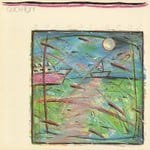 They played the BC interior and graduated to the Vancouver scene while writing some material, when Bob Brooks of Signature Productions approached them to be their manager. They soon scored a recording deal with Washington State-based Tunesmith Records and booked some time at Little Mountain Studios in Vancouver. With Ron Obvious assisting on production, whose credits before and after included the likes of DOA, Sinny Puppy, KD Lang, and Loverboy, among others, their debut album was released in the summer of 1980. BREAKAWAY quickly caught critics’ and the audiences’ attentions. Musically, they were compared to The Cars, lyrically – Stryper, blending keyboard-driven, new wave/pop music with messages that were honest and clean. Everyone had a hand in the writing, and all shared lead vocal duties. No singles were released, but “Pink Shirts” still got regional airplay throughout the BC interior. And on the strength of the title track), “Modern Romans” (about the Iranian hostage crisis, and twhich almost didn’t make the cut due to the political sensitivities of King’s lyrics), “Rendezvous,” and “Pink Shirts” (co-written by Giesbrecht’s wife Rhonda), the band continued to tour western Canada into 1981, making some stops along the way south of the border. The band was left looking for a new label when Tunesmith closed its doors. Undaunted, they continued writing and touring while shopping around their material. But sensing there weren’t alot of venues to play that catered to their style, they instead began performing the regular Vancouver night clubs – six nights a week for about a year. Following which, King, Geisbrecht, and Hendricks all eventually left. deGroot and Cordalis took some time off to re-think things, then regrouped with Dale Dirksen on bass and drummer Mark Greenhalgh. But a little over a year later, the band again fell apart while on the bar circuit. With only deGroot left from the original core, he continued on with various incarnations, naming themselves Dick Regret and the Amazing Ray Guns. They were picked up by Star Song Records out of Houston, Texas in ’83. Reverting to the Quickflight name, they went back to Little Mountain, and with deGroot now the principal songwriter and having taken over lead vocals, they cut DECENT BEAT the next year. With Dirksen and new guitarist Greg Johnson, the sound leaned more towards synthesizers and programmed drum beats. And with songs like the lead-off “Water of Life,” “Safety In Numbers,” “Fade To Glory,” and “Metro Alien” (which featured Cordalis guesting on guitars), the album was considered ground-breaking at the time as one of the first Christian rock albums consisting of primarily of electronica, and also one of the first that was digitally mastered. Through their career, they toured much of Canada and throughout the US mid-west as far south as Texas, along with the likes of The Steve Taylor Band, Servant, Kerry Livgren, The Rez Band, Shelia Walsh, Undercover, and Larry Norman. In only a couple of short years, they’d gone from playing in coffeehouses in Penticton, and Surrey, BC to performing in front of 25,000 people at The Exit Festival in southern Califronia. But by the summer of ’84, musical differences and outside projects led to the demise of the group. Through his connections at Little Mountain, deGroot joined Strange Advance, then eventually got out of the business all together and worked in production in the film industry. Cordalis stayed in Vancouver and got into web design, photography, and the mobile disc jockey business. Dirksen moved to Saskatoon and became a Minister. Giesbrecht now lives in Austin, Texas. King got into the trucking business, and Hendricks became a woodworker.
|



